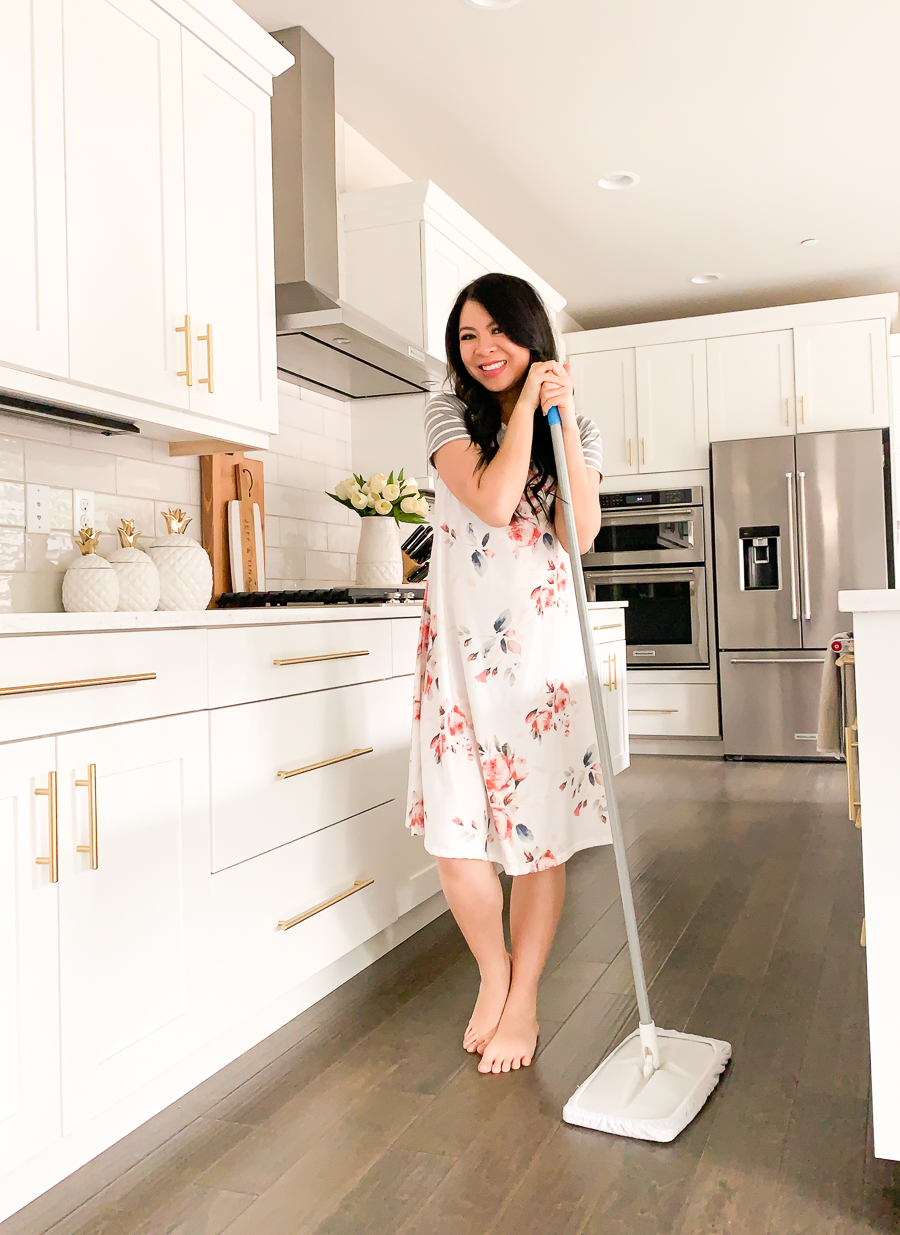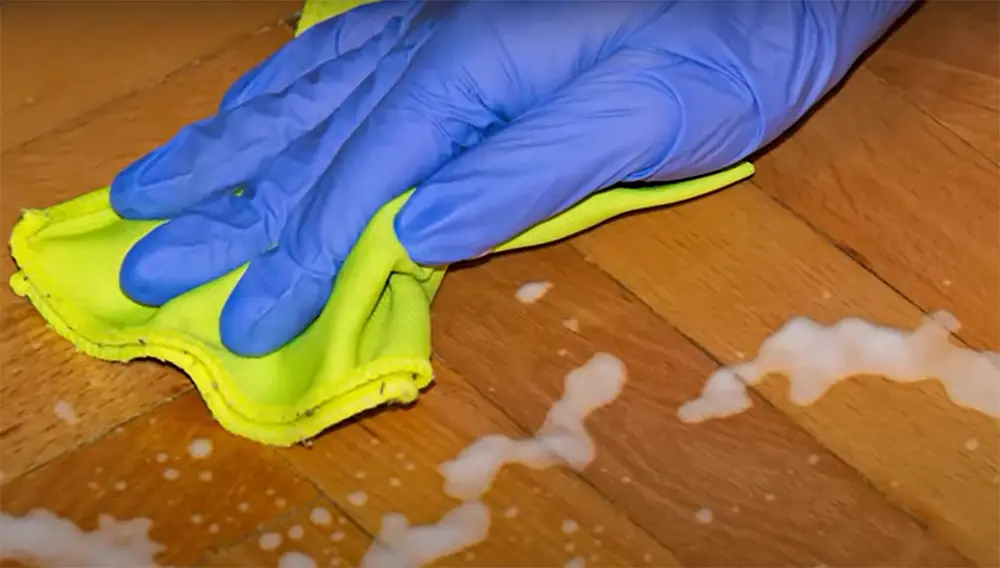Ever wonder if that bottle of dish soap you use to clean your greasy dishes could also double as a floor cleaner? It’s a tempting thought, especially when you’re out of your usual floor cleaner and the cleaning urge hits. But before you grab that sudsy solution and start scrubbing, let’s explore the world of dish soap and floors. Can this everyday kitchen staple hold its own against the grime on your floors, or is it best left for dishes?

Image: viewfloor.co
The answer, like most things in life, is a little complicated. It turns out, dish soap can serve as a decent floor cleaner in a pinch. But there are some important factors to consider before you start using dish soap on your floors. This article delves into the ins and outs of using dish soap to clean your floors, revealing the benefits, drawbacks, and tips for a successful clean.
The Good, The Bad, and the Sudsy: Dish Soap on Your Floors
Dish Soap: A Multifaceted Cleaner
Dish soap is designed to cut through grease and grime, making it effective at cleaning a variety of surfaces. This same principle applies to floors. Dish soap can tackle dirt, dust, and even sticky messes, leaving your surfaces sparkling.
The Dish Soap Advantage: Gentle Cleaning
Dish soap is generally considered a gentle cleaner compared to harsh chemicals found in some commercial floor cleaners. This makes it a good option for people with sensitive skin or who have concerns about using strong chemicals in their homes. For those with pets or young children, dish soap offers a safer alternative, reducing the risk of harsh fumes and accidental spills.

Image: cleanerprofy.com
The Dish Soap Dilemma: Not All Floors Are Created Equal
While dish soap can work on a variety of floors, it’s not suitable for all surfaces. Here’s a breakdown:
- **Good candidates:** Hardwood floors, tile floors, vinyl floors, and even linoleum floors generally tolerate dish soap well.
- **Proceed with caution:** Laminate flooring can be more sensitive. It’s best to test dish soap in a small, inconspicuous area to see how it reacts.
- **Avoid:** Use dish soap sparingly on delicate surfaces like unfinished wood floors or floors with a waxed finish. Dish soap can strip these floors, making them dull and susceptible to damage.
From Dish to Floor: How To Use Dish Soap Effectively
The Right Formula for Floor Duty
Not all dish soaps are created equal. Choose a mild, non-abrasive dish soap free of harsh chemicals and dyes. Avoid using dish soap with citrus scents or other potent additives, as these can damage your floor’s finish.
The Golden Ratio: Diluted Dish Soap is Key
A little dish soap goes a long way. Mixing too much dish soap with water can leave your floors sticky and slippery, creating a potential hazard. A good rule of thumb is to use a few drops of dish soap per gallon of warm water.
Cleaning Routine: A Step-by-Step Solution
Here’s a simple cleaning routine using dish soap:
- Sweep or vacuum: Begin by removing any loose dirt or debris from your floor.
- Mix your solution: Combine a few drops of mild dish soap with a gallon of warm water.
- Cleaning time: Using a mop, gently scrub your floors with the solution.
- Rinse thoroughly: Rinse the floors with clean water to remove any soapy residue.
- Dry the floors: Use a dry mop or cloth to remove excess water and prevent streaks.
Beyond Cleaning: Dish Soap’s Hidden Talents
Tackling Stubborn Stains
Dish soap is a surprisingly effective stain remover. A paste made from dish soap and baking soda can be applied to stubborn stains on your floors, such as coffee spills or red wine drips. Allow the paste to sit for a few minutes before scrubbing and rinsing.
Bringing Life Back to Grout
Dirty grout lines can make even the cleanest floors look dingy. A mixture of dish soap and baking soda can be used to scrub and brighten your grout, leaving your floors looking fresh.
A Quick Refresher for Your Floors
Dish soap can also be used to give your floors a quick refresh. A diluted solution of dish soap can be used to mop your floors between deep cleans, removing dust and dirt buildup while leaving them smelling clean and fresh.
Can You Clean Floors With Dish Soap
The Bottom Line: Dish Soap – A Cleaning Superhero (With Some Limitations)
While dish soap will not replace a dedicated floor cleaner for every cleaning situation, it offers a sustainable and effective option for everyday cleaning. By understanding its strengths and limitations, you can maximize its cleaning potential to keep your floors sparkling clean.
So, the next time you’re caught short on floor cleaner, don’t be afraid to give dish soap a try. Just remember to use it sparingly, rinse it thoroughly, and always test it on a small, inconspicuous area before tackling the entire floor.





